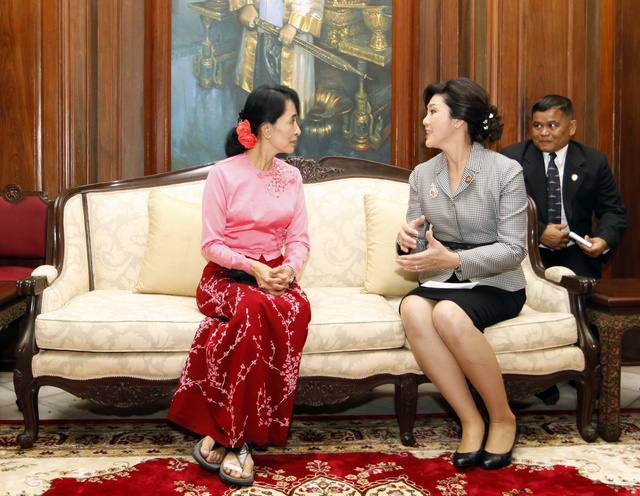Thailand expects to have a bilateral trade surplus with Burma by 2016, fuelled by solid economic and cross-border trade growth, says a senior executive of Bangkok Bank (BBL).
Executive vice-president Kobsak Pootrakool said the company forecasts increasing demand for Thai products from neighbouring countries thanks to improving economic sentiment.
Thailand recorded a first-half trade deficit of 40 billion baht (US$1.33 billion) from its neighbours, but the figure is expected to dip to 20 billion baht by the end of this year, he said.
There is increasing demand for Thai goods in Burma, especially fuel oil, food and beverages, textiles, electronic equipment, steel and vehicles.
In the past several years, Thailand recorded a trade deficit of 70 billion baht with neighbouring countries, mainly from natural gas imports. Thailand imports around 100 billion baht worth of natural gas from Burma per year, accounting for 94 percent of the country’s total, Mr Kobsak told a seminar yesterday entitled “A Trusted Partner and Reliable Close Friend for the AEC”.
[related]
But Thailand has lowered its trade deficit with Burma in recent years, helped by strong growth of cross-border trade at 17 percent average annual growth, he said.
Bilateral trade between Thailand and Burma is worth 200 billion baht a year, making it the second-largest trade value among Thailand’s ASEAN partners behind Malaysia.
Burma’s economy is projected to grow by 7.5 percent this year, rising to an annual average of 10 percent over the next five years, said Mr Kobsak.
“This growth will further stimulate our bilateral trade volume,” he said, adding border trade makes up 80 percent of total trade between the two countries.
Mr Kobsak said mid-sized Thai companies are gearing up to expand in Burma in order to capitalise on huge business opportunities now that the country is more open.
Agricultural businesses, processed food, natural resources, mining, and building and construction are key sectors with potential in Burma, he said.
Many large Thai companies have already jumped into neighbouring countries.
BBL, the country’s largest bank by total assets and a regional leader in international banking, is ready to support local customers with overseas business expansion, said Mr Kobsak.
This article was originally published in the Bangkok Post on 28 April 2014.



